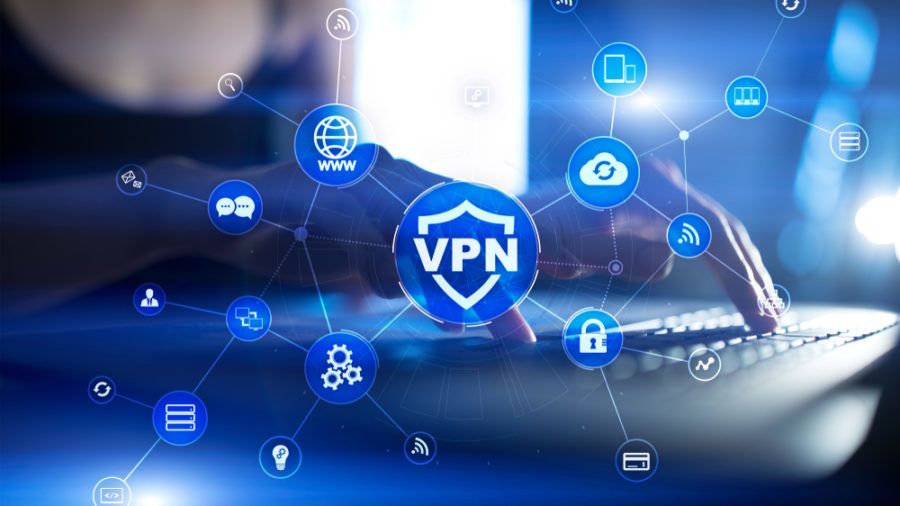We live in an era of mass surveillance and increasing cybercrimes. Our growing dependency on the internet has created large digital footprints, and the more we use the internet, the larger they grow, resulting in more security risks. Your digital footprint is the information you leave behind as a result of your online activities. It is often used to monitor your online presence and create a detailed online profile, which cybercriminals could exploit if they get a hold of it.
Security and privacy are becoming a focal point for internet users, and they now realize the need for hiding their digital footprints. The best internet providers are those who provide a secure internet connection. For instance, Spectrum is one of the providers that have also started offering security with their services. You get a free Spectrum Suite app with all Spectrum internet plans. However, it doesn’t hide your digital footprint if you are in public spaces. Virtual Private Network (VPN) can help you protect your digital privacy while keeping you secure from cybercriminals.
What is VPN?
A VPN creates a private network from a public connection to keep you anonymous. It protects your digital privacy by masking your internet protocol (IP) address and creating a secure and encrypted connection. VPN offers more security than a secured Wi-Fi hotspot. It establishes a secure tunnel that hides all your online activities and digital presence from anyone looking to snoop on you.
Importance of Using A VPN
VPN is essential for hiding your digital footprint from snoops or cybercriminals, especially if you are using the internet in public spaces. Although convenient, public Wi-Fi leaves you vulnerable to cyber-attacks. A VPN protects your data while you are sending emails, browsing the internet, or even doing transactions at some coffee shop or a hotel lobby.
A home network may be secure, but it doesn’t offer you anonymity. A VPN protects your digital privacy from your ISP, enabling you to use the internet without worrying about your data being sold to someone else. It also prevents apps or websites from linking your online behavior with your IP address. Aside from keeping you secure, it also lets you access content from any location.
How Does a VPN Work?
VPN makes it seem like you are in another location by creating a secure tunnel between your network and an exit node thousands of miles away. This allows you to hide your digital presence and enables you to use the internet freely.
VPN uses encryption to keep your data private. Encryption transforms your data into incomprehensible text, also known as ciphertext, and makes it impossible to read it without a key. The key remains between you and your VPN server. Here is how a VPN works:
You connect to a VPN through a secure tunnel where your data is encoded and transformed into ciphertext. It means your data travels in an unreadable form between you and the VPN’s server.
The VPN server sends your data to the site you are looking to connect with. Hence, your device gets a different IP address. VPN acts as a barrier between you and your ISP, allowing you to use the internet anonymously.
However, VPNs also come with some challenges. They either slow your performance due to their servers being miles away or limit your usage. The latter issue is common with free VPN services. If you want the best performance, choose a VPN with servers spread across the globe.
Things A VPN Hides
Here are a few things that a Virtual Private Network (VPN) hides:
Your IP Address
A VPN assigns a new IP address to your devices from its servers. Your IP address is a unique address that provides information about your ISP, city, region, and country. Furthermore, it helps to track your online activities, but you can avoid surveillance by using a VPN. A VPN hides your IP address from hackers, search engines, websites and apps, and even from your ISP.
Your Geographic Location
A VPN also hides your physical location by connecting you to different servers around the world. Hiding your location allows you to bypass geo content restrictions and online price discriminations. Hence, you can access more content and streaming services and discover the best possible online deals through a VPN.
Your Search History (to some extent)
A VPN helps you hide your search history from your ISP, cybercriminals, marketers, and governmental entities. However, your web browser can still see your online searches even when connected to a VPN. For example, Chrome can still see your online searches if you are searching for something while logged in to your Google account, even if you are using a VPN.
However, a VPN stops websites from making a connection between your IP address and your online searches. You can maintain browser anonymity by clearing your cookies and selecting a more private browser.
Your Web Activities
A VPN helps to protect your internet freedom, allowing you to stream, game, download, or browse the internet without worrying about any snoops.
Your Personal Information
VPN keeps your personal data secure by offering extra protection. It even offers security and privacy on public hotspots. Thus, you can use the internet at any location without worrying about data breaches.
Final Words
With stalkers and cyber-criminals lurking in every corner, it is essential to hide your digital footprint. A VPN is your digital defense against snoops as it maintains your digital privacy and keeps you secure.

